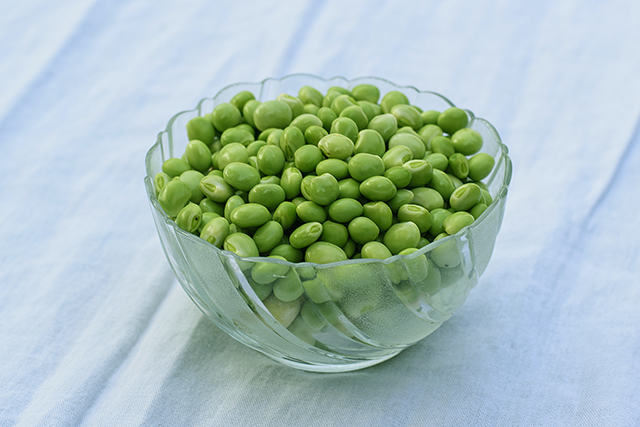Phytocompounds in pigeon pea offer therapeutic potential against multiple diseases
06/05/2019 // Evangelyn Rodriguez // Views
Tags: alternative medicine, anti-diabetes, anticancer, breast cancer, Cajanus cajan, cancer cures, cancer prevention, cancer solutions, chronic inflammatory diseases, disease treatments, food cures, food is medicine, functional food, goodcancer, goodfood, goodhealth, goodmedicine, goodscience, ligands, longevity, Malaria, measles, natural cures, natural medicine, phytochemicals, pigeon pea, prevention, remedies, research, rheumatoid arthritis, sickle cell disease, superfoods, therapeutic compounds, Type 2 Diabetes

- The researchers hypothesized that various parts of pigeon pea contain phytochemicals that can interact with the active sites of proteins found in different human diseases.
- These diseases included rheumatoid arthritis, breast cancer, Type 2 diabetes, malaria, measles, and sickle cell disease.
- The researchers used extracts obtained from pigeon pea leaves, stems, and seeds for their study.
- Of the 242 ligands they identified using GC-MS, they drew the three-dimensional structures of 47 compounds using ChemSketch; they retrieved the structures of the other compounds from PubChem.
- The researchers confirmed that the mechanism of action of pigeon pea involves protein-ligand docking – that is, the ligands of different phytochemicals present in pigeon pea can dock at the active sites of protein markers of human diseases.
- They identified 13 compounds that interacted with the target protein for rheumatoid arthritis, iNOSox; 10 compounds that interacted with the Plk1 protein (breast cancer); 18 compounds that interacted with DPP-IV (Type 2 diabetes); three compounds that interacted with plasmepsin II (malaria); one compound that interacted with ICAM-1 (measles); and two compounds that interacted with oxyHb (sickle cell disease).
- They further examined these compounds using ADMET analysis and identified a total of 26 promising drug candidates for multiple human diseases.
The researchers concluded that pigeon pea, particularly its seeds, is an invaluable source of therapeutic compounds that can be used in the treatment of multiple human diseases.
Read the full study at this link.
Journal Reference:
Deepu M, Lidiya PJ, Manila T, Divyasree P, Sandhya VR. THERAPEUTIC MOLECULES FOR MULTIPLE HUMAN DISEASES IDENTIFIED FROM PIGEON PEA ( CAJANUS CAJAN L. MILLSP.) THROUGH GC–MS AND MOLECULAR DOCKING. Food Science and Human Wellness. December 2017;6(4):202–216. DOI: 10.1016/j.fshw.2017.09.003
Related Topics
alternative medicine anti-diabetes anticancer breast cancer Cajanus cajan cancer cures cancer prevention cancer solutions chronic inflammatory diseases disease treatments food cures food is medicine functional food goodcancer goodfood goodhealth goodmedicine goodscience ligands longevity Malaria measles natural cures natural medicine phytochemicals pigeon pea prevention remedies research rheumatoid arthritis sickle cell disease superfoods therapeutic compounds Type 2 DiabetesLatest News
Related News
11/21/2023 / By Arsenio Toledo
11/21/2023 / By Evangelyn Rodriguez
11/21/2023 / By Zoey Sky
11/20/2023 / By Arsenio Toledo
11/17/2023 / By Zoey Sky
11/15/2023 / By Kevin Hughes
Take Action:
Support Natural News by linking to this article from your website.
Permalink to this article:
Copy
Embed article link:
Copy
Reprinting this article:
Non-commercial use is permitted with credit to NaturalNews.com (including a clickable link).
Please contact us for more information.
Please contact us for more information.






















